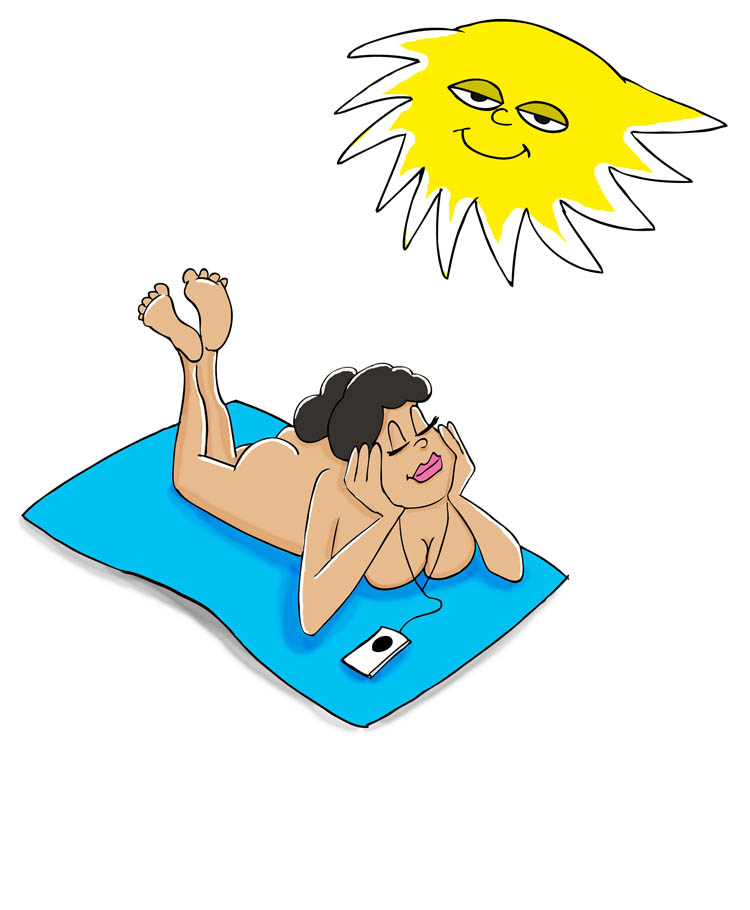 In 1999, Going Natural published an article reviewing some little known research about the benefits of sun exposure. The article suggested that the advice and supporting research that told us to hide from the sun was very one-sided. It concluded that the sun had many health-giving benefits and that the advice being given a decade ago was probably an overreaction.
In 1999, Going Natural published an article reviewing some little known research about the benefits of sun exposure. The article suggested that the advice and supporting research that told us to hide from the sun was very one-sided. It concluded that the sun had many health-giving benefits and that the advice being given a decade ago was probably an overreaction.
In the ensuing years, we have been deluged by research studies on the benefits of vitamin D, also known as the sunshine vitamin. The evidence that staying out of the sun was bad advice is now overwhelming.
In an April 28, 2007 article in the Toronto Globe and Mail, Martin Mittelstaedt reports that “those studying the vitamin say the hide-from-sunlight advice has amounted to the health equivalent of a foolish poker trade. Anyone practising sun avoidance has traded the benefit of a reduced risk of skin cancer—which is easy to detect and treat and seldom fatal—for an increased risk of the scary, high-body-count cancers, such as breast, prostate, and colon, that appear linked to vitamin D shortages.”
In The Scientist in 2003, Dr. Colleen E. Hayes, a professor of biochemistry at the University of Wisconsin at Madison, writes, “Urged by the fear of skin cancer, individuals are avoiding sun exposure and using sunscreens . . . Somewhere there is a balance between too much sun and melanoma risk, or too little sun and autoimmune disease.”
In a March 27, 2003 interview with the Australian Broadcasting Corporation, Prof. Michael Holick, of the Boston University Medical Centre, said that “In Europe it’s estimated that 25% of women who die of breast cancer may not have died of breast cancer if they would have maintained adequate vitamin D levels throughout their life and have had some sun exposure.”
In the February 2005 edition of the Journal of the National Cancer Institute in the USA, a study by Dr. Marianne Berwick of the University of New Mexico found that people with greater sun exposure were less likely to die of melanoma. Ironically, this is a type of skin cancer that experts used to tell us could be avoided by keeping out of the sun. The study also found that those who had a history of getting sunburn were more likely to die of skin cancer.
In the same issue of the journal was a second study by Dr. Karin Ekström Smedby, of the Karolinska Institute in Stockholm. It found that the greater the exposure to sunlight, the lower the risk of non-Hodgkin’s lymphoma. It also found a similar but weaker correlation for Hodgkin’s disease.
Researchers at the Harvard School of Public Health and Harvard Medical School presented a study at the 2005 annual meeting of the American Association for Cancer Research that showed that patients with high vitamin D intake who had surgery in months with lots of sun were more than twice as likely to be alive five years after surgery, compared to patients with low vitamin D intake who had wintertime operations.
On April 5, 2006, the Associated Press reported on two new studies: “High levels of vitamin D translated to a 50 per cent lower risk of breast cancer, one study found. The second study by Canadian researchers found that women who spent time outdoors or got a lot of vitamin D from their diets or supplements—especially as teens—were 25 per cent to 45 per cent less likely to develop breast cancer than women with less of the nutrient.”
In 2007, researchers at Creighton University in Nebraska published the results of a four-year study. They randomly assigned 1180 women to two groups. Those assigned to take vitamin D and calcium supplements were 77% less likely to develop cancer.
On May 16, 2008, Reuters reported on a study from Mount Sinai Hospital in Toronto. It concluded that “women deficient in the ‘sunshine vitamin’ when diagnosed with breast cancer were 94 per cent more likely to have their cancer spread and were 73 per cent more likely to die than women with adequate vitamin D levels.”
It’s not just cancer that’s involved. Sunshine has been shown to help with hypertension, diabetes, osteoporosis, influenza, psoriasis, seasonal affective disorder, pre-menstrual syndrome, sleep disorders, and autoimmune diseases. In a July 5, 2003 article in the Globe and Mail, William Illsey Atkinson reported that “for nearly a decade, epidemiologists at UNESCO have found a strong fall-off in the rate of multiple sclerosis in populations closer to the equator” and that “your chances of developing MS are significantly lower if you’ve lived in a sunny climate from infancy to your mid-teens.”
Exposure to sunshine is by far the most efficient way to build up vitamin D. A cup of milk fortified with vitamin D will give you only about 100 International Units (IU) of vitamin D. A typical multi-vitamin will give you 400 IU. But spending 10–15 minutes naked in the sun, without sunscreen, will cause your body to make 10,000 IU! (People with darker skin will need a bit more time to make the same amount of vitamin D.)
Nobody knows how much vitamin D is needed. While some scientists have suggested that more than 10,000 IU are toxic, others are now disputing that estimate. While it is possible to take too many vitamin D supplements, your body’s production of vitamin D is self-regulating. It won’t make too much. So it is best to use your natural processes to get your optimal vitamin D levels.
In Canada, the winter sun is not strong enough to produce enough vitamin D. During those months, it is best to complement sun exposure with a nutritional vitamin D supplement. Experts currently suggest between 1,000 and 2,000 IU per day.
The big question that remains is what happens to the substances in our bodies that get synthesized into vitamin D by sunshine on our skin. (When we take vitamin D as a supplement, our bodies are not producing it.) Some authors have suggested that the elements that our bodies turn into vitamin D with the help of sunshine might build up and turn harmful if they are not used.
As with most things, it seems more prudent to live our lives as naturally as possible. That includes using the sun to allow our bodies to make our vitamin D the natural way. Nonetheless, sunshine should also be taken in moderation.










